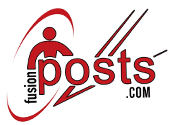How to conduct effective Reference Checks
Checking references before making an offer can actually save time, money, effort, and a lot of embarrassment. Reference checks allow you to ensure a successful hire – finding the most qualified person who is suited for the position. By conducting reference checks you can verify the information already provided by the candidate and gain greater insights into the candidate’s skills, knowledge and abilities from someone who has actually observed the candidate perform.
Types of References
There are two types of references – professional and character.
Professional references are typically from a former employer who can vouch for the candidate’s conduct, character, working skill and knowledge during the period of the employment with them. As well, provide examples of similar work that the candidate has completed and also verify the accomplishments that the candidate mentioned during the job interview.
On the other hand, character references are from people who are loyal to the candidate – friends, neighbors, family members or clergy. This reference usually describes the candidates’ positive personal attributes – integrity, motivation, and ability to balance work and life.
Prepare before conducting a reference check
- Person conducting reference check must familiarize themselves thoroughly with the information the candidate has already provided, including the application, resume, and interview responses. Identify areas that require elaboration or verification.
- Before making the calls, prepare a standard list of questions so that the same sets of question are asked, giving a consistent frame on which to base decisions. Questions regarding:
Dates of employment and title
Reason for leaving
Work ethic
Interpersonal skills>
Time management skills
Integrity
Other strengths/weaknesses
Eligibility for re-hire (“Would you hire this person again?”)
- All questions should be job-related. Do not ask questions during a reference check that are prohibited from being asked during an interview.
Who conducts reference check?
The hiring manager or the supervisor of the position is responsible for contacting the candidate’s references. The person who directly supervises the position being filled will have a better understanding of how to evaluate the answers to questions. If the reference check is assigned to HR personnel, they should be very familiar with the reference checking procedure and the target position. Whenever possible, avoid assigning reference checking to less experienced employees.
How to conduct reference check?
Telephone reference check is the most common way of conducting a reference check.
- Check more than one professional and character reference.
- Identify yourself, your title, organization name and tell them you are calling about a reference for a candidate you are considering.
- Ask the reference provider if now is a good time to talk or whether they would rather schedule a specific time to conduct the reference. This gives the person time to move to a private office, if necessary.
- Reassure the provider that that you have the consent from the applicant and that all responses will remain confidential and what he or she says will not dictate whether you hire the individual.
- Give a brief description of the responsibilities, duties, and working environment of the position for which the candidate has applied. If the reference provider has a good understanding of what your candidate will be doing, then he/she will be able to give you better reference information.
- Start the reference check by asking open-ended questions such as, ‘What duties did Kim perform’. This gets the provider talking.
- Always ask why the applicant left employment, or restate the reason the applicant gave as to why he/she left employment and ask the reference provider to verify this. If the reference provider declines to answer a question, ask if someone else might be able to share information about the topic.
- Give them time to answer your questions. Let them respond, and do not cut them off or put words in their mouth. Pay attention to what is said, and to what is not said. If you encounter hesitations, try to rephrase the question to see if you can get an answer.
- Be alert to unusual hesitations, very negative or very positive responses and consider the entire response you receive.
- Conclude the reference check with this vague and open-ended question: “Would you consider Kim for this position?” As they answer, don’t interrupt them; simply write down everything they say. Close the conversation by thanking them for their.
Evaluating the information you collect
- Do not base a decision to hire solely on information received from a reference check. Carefully assess information you received to determine what is helpful and what may be unrelated to the job position.
- Be aware of employers who speak too favourably or use faint praise to avoid giving a negative response about a candidate. If you receive negative information from a reference, evaluate it with caution and check the information against other reference statements. What may have been perceived as a weakness at a previous job may actually be a strength for your job.
- All reference information must be kept confidential and should not be shared with the applicant.
- Document the information gathered from your reference checks.
